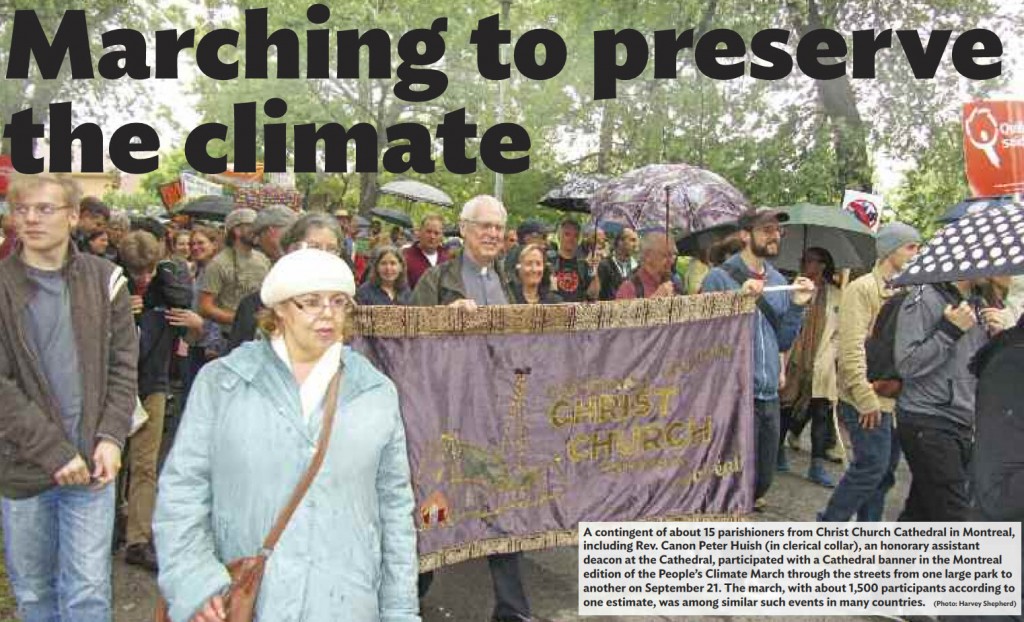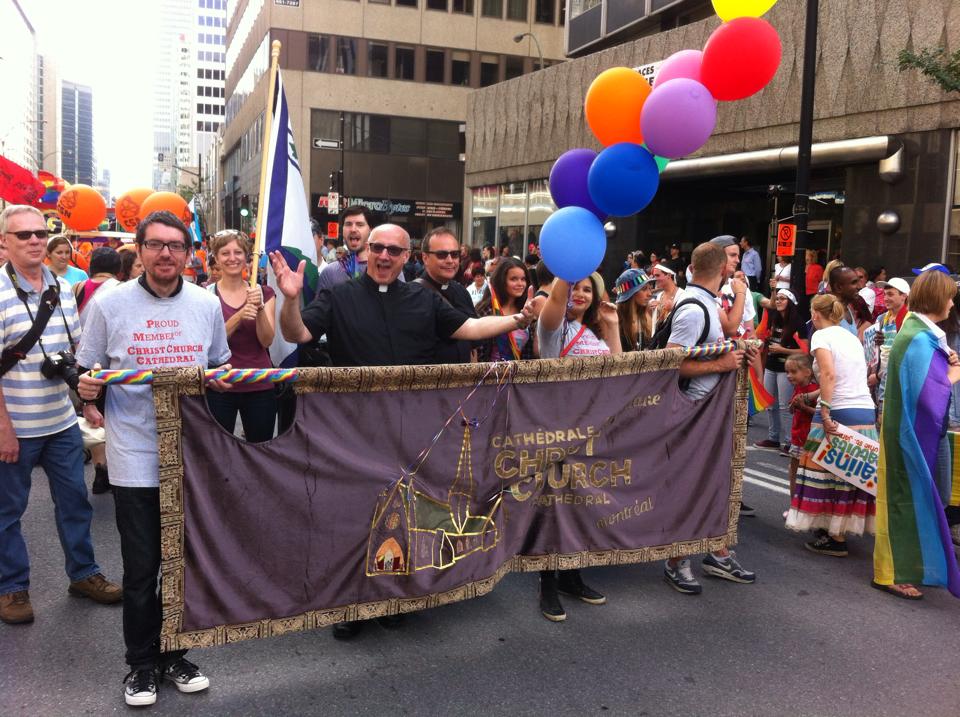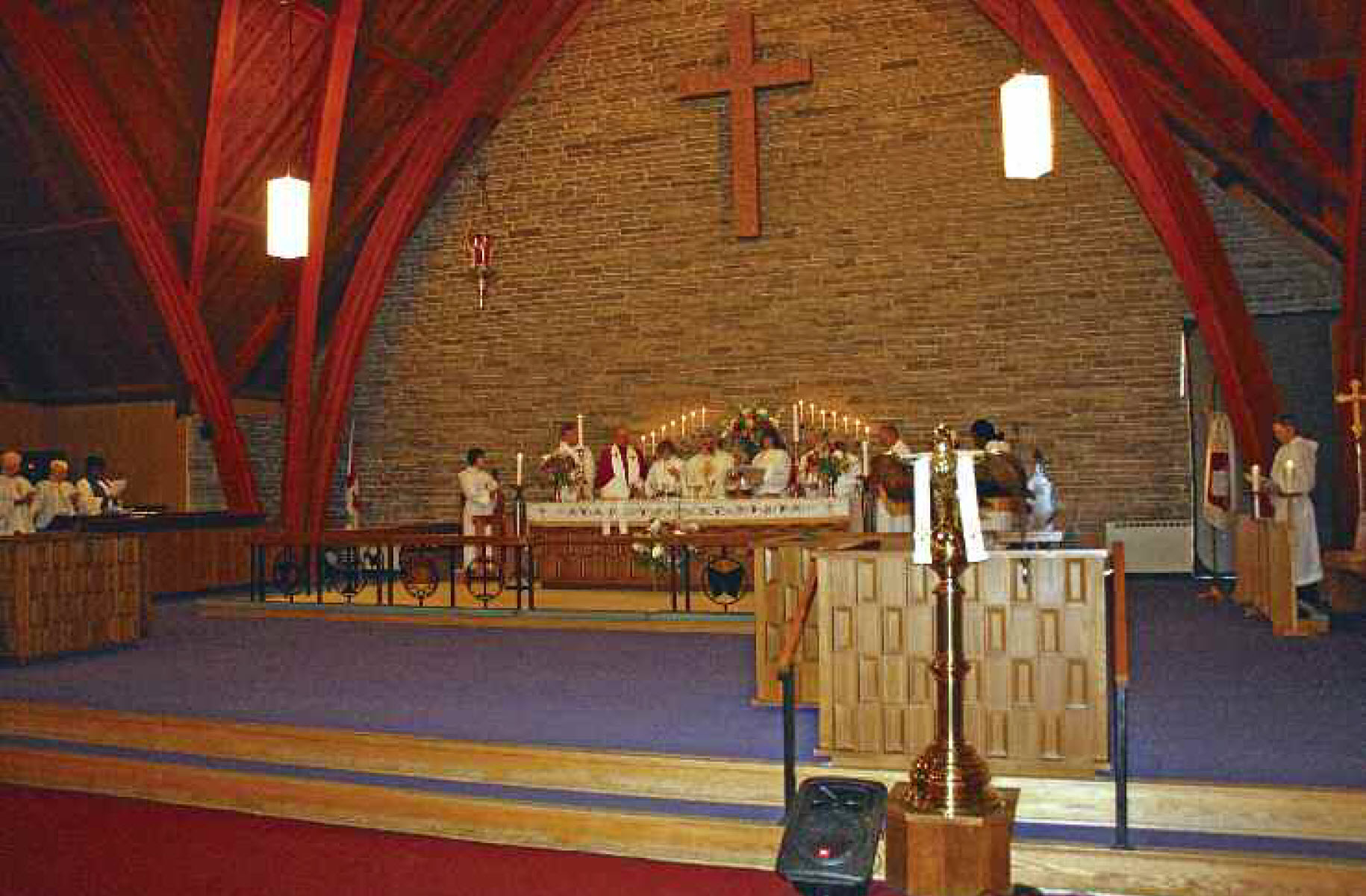Rev. Robert Camara and Donald Boisvert were ordained by Bishop Barry Clarke in June, Camara as a priest and Boisvert as a deacon; both Camara and Boisvert are married – to men.
Anyone still labouring under the misapprehension that the Anglican Church of Canada is not being consumed by an obsession with homoerotic sex, need look no further for illumination than to the preoccupations of those whom it is ordaining. Here is an extract from “Holy Sex” by Deacon Boisvert:
Anyone who has ever publicly cruised other men, or participated in some of the more arcane rituals associated with S/M sex, for example, will understand the powerful, almost overwhelming pull of the masculine and the unspoken codes with which we surround and protect it. Masculinity represents many things for gay men: potency, dominion, authority, abandonment, protection. As the dominant masculine symbol, the phallus acquires many characteristics of the holy. This is not a particularly modern interpretation. Phallic worship is as old as human civilization, and perhaps as controversial today as it was in the past. It has always been transgressive, associated with disorder and excess, with rioutous freedom and wanton sex. …. I call gay sex “holy sex” because it is centred on one of the primal symbols of the natural world, that of male regenerative power. The rites of gay sex call forth and celebrate this power, particularly in its unknown and unknowable anonymity. Gay men are the worshippers paying homage to the god who stands erect and omnific, ever silent and distant.
Just what the doctor ordered for ailing Canadian Anglicanism: phallic worship.
Here, in his book “Sacred Space”, Boisvert describes his life’s most “spiritual moments” in – where else – gay bars and bath-houses:
Because I am a gay man, my first time in a gay bar, my first visit to the baths, and most poignantly, the first time I stepped into the Stonewall Inn in New York City have also been uplifting, spiritual moments in my life.
I am looking forward to the gradual transformation of Christ Church Cathedral into a “Sacred Space”; my bet is that it will be a gay bathhouse – once the baptismal font has been enlarged.
Boisvert used to be a Roman Catholic, an affiliation that proved unsympathetic to his yearning to worship penises. Unsurprisingly, he has received a warm welcome in the Anglican Church of Canada as it sinks inexorably into Boisvert’s murky world of cruising other men looking for a spot of “Holy Sex”.
From here (page 4):
To say that Donald Boisvert has come out as a gay man would be an understatement. You could almost say he wrote the book (or books).
His ordination as an Anglican deacon by Bishop Barry Clarke June 3 is another event in his distinguished and public career as a scholar and activist concerned particularly with sexuality and the relation between sexuality and religion.
In a note for The Montreal Anglican in 2009, on the occasion of his being received into the Anglican Church by Bishop Barry Clarke, he wrote:
“I was raised a Roman Catholic; I studied for the Catholic priesthood; and I am a scholar of Catholic religious culture. I have a great deal of affection for the Catholic Church, in large part because it marks my cultural heritage and it guided me through my youth, but also because it still has a great deal to offer. But I am gay, and I have more and more difficulty with the Vatican’s archaic teachings on human sexuality, including its position on women and their place within Catholicism.
More broadly, however, the Catholic Church remains a deeply entrenched patriarchal institution, with an authoritarian and rigid governing structure.
It is difficult to refrain from speculating on why Bishop Barry Clarke would ordain someone whose chief interests lie in the exploration of the ritualistic aspects of sadomasochism and the holiness of male genitals. Is the bishop a witless lunatic, a closet adorer of phalluses, a neophyte practitioner of wanton sex looking for instruction?
Who can say – perhaps he just picked up Boisvert in a bathhouse.
Note: I’ve updated this article since Robert Camara and Donald Boisvert, while married to other men, are not married to each other as I had previously stated.
Like this:
Like Loading...




 From
From